Hyperthyroidism in dogs is a common problem. It happens when the thyroid gland works too much, causing many bad things to happen in their bodies. It’s important to notice these bad things early so the dog can get better. Different types of dogs can get hyperthyroidism, and sometimes even young dogs can get it.
Look out for signs like losing weight even if they eat well, drink a lot, and are not calm. If you see these signs, it’s important to go to the vet quickly.
In this blog, we will go over the 18 main symptoms of hyperthyroidism in dogs and describe the best ways to treat them. Please tune in for next time to learn how to see the signs of the disease and ensure your fluffy friend gets the care it needs!
Causes of hyperthyroidism in dogs
-
Genetics
Certain breeds may have an increased risk of acquiring a problem called hyperthyroidism due to their genetic factors. Also, some dog breeds are more likely to transmit these genes to their puppies rather than other dog breeds.
-
Diet
If dogs don’t eat good food with all the important stuff they need, their thyroid gland might not work right. Then they could end up with a condition called hyperthyroidism.
-
Environmental Influences
Due to such exposure to the dogs, these toxins, pollutants, or chemicals may cause a thyroid problem in dogs in the long term.
-
Hormonal Imbalance
The brain is the one that secretes a hormone that controls the body’s balance. If the balance of hormones gets broken, this would naturally affect the function of the thyroid gland and result in hyperthyroidism.
-
Age
Aging dogs could develop hyperthyroidism easily, but just think about how it works. Their thyroid glands become weaker and weaken with age.
-
Medical Conditions
Among dogs, the main conditions that cause this type of disease are the tumors and the inflammation/thyroiditis of the gland.
-
Medications
Some drugs could initiate the production or regulation of hormones by the thyroid gland, which may lead to hyperthyroidism.
Recognizing these possible factors of canine hypothyroidism could help dog owners understand the factors and take preventive measures to maintain their pet’s thyroid health.
List of 18 Symptoms of Hyperthyroidism in Dogs
-
Difficulties swallowing
This condition connects with the thyroid gland’s overreactivity and may result in many other complications. If your pet sees swallowing difficulties and has different signs like weight loss or sleeplessness, it is important to take your furry friend for veterinary care without delay. Early detection and treatment can significantly enhance your dog`s life quality.
-
Increased thirst
Excess thirst in dogs indicator that they might have hyperthyroidism, a condition affecting their thyroid gland. If your pet keeps asking for more water, consider looking into the matter deeper. High levels of thirst, besides other symptoms like weight loss and restlessness, might be a sign of an underlying health problem. Timely veterinary attention to harmonizing hyperthyroidism can ensure an efficient management of the condition.
-
Increased stool
Hyperthyroidism can cause a number of problems in dogs, and changes in stool consistency are one of them. One of the most familiar symptoms is the increasing number of stools, which may signify some digestion problems due to abnormal functions of the thyroid gland. If there are cases in which your dog experiences frequent or excessive bowel movements, the underlying condition may be hyperthyroidism. Involving the veterinarian is vital for the proper diagnosis and treatment.
-
Shortness of breath
If your dog struggles with breathing or pants a lot, these might be signs of a thyroid gland issue called hyperthyroidism. This can cause extreme thirst and restlessness in them. If you observe these symptoms, it is essential to bring your four-legged family member to the vet to make sure that proper treatment is received.
-
Gagging and vomiting
Searching for hyperthyroidism in dogs can be tricky, but try to look for signs such as gagging and vomiting. These signs might indicate a thyroid issue that a vet should examine further. If you happen to notice any of the above symptoms in your pet, hold off no longer and have your vet check them thoroughly and prescribe appropriate therapy. The first thing to follow is to ensure that your cleaning products are nearby and easy to grab.
-
Increased urination
Does your pet spend more time in the toilet room than regular? An increase in urination may be a symptom of hyperthyroidism in dogs. The pet can drink more water and thus urinate more often. Watch out for this symptom and others like loss of appetite and restlessness. Early detection will help your dog stay healthy and allow them to be happy.
-
Enlargement of thyroid
Dog thyroid enlargement is one of the first signs of hyperthyroidism. This symptom, usually recognizable as a neck lump, means a thyroid gland dysfunction. Knowing this symptom suggests a regular veterinary visit and medical exam, facilitating quick diagnosis and appropriate treatment for the pet.
-
Swelling under the neck
On dogs’ necks, swelling may be a sign of hyperthyroidism – a thyroid gland condition. Swelling of the thyroid gland, so-called goiter, is a visible sign in addition to others. Should you notice the presence of any abnormal skin growth or lump, we advise you to make an appointment with your veterinarian for a thorough check-up.
-
Weight loss
Dogs with facial swelling often suffer from hyperthyroidism. Look for swelling associated with eyelids or swollen faces. This symptom might not always show up, but if you notice any changes in your dog’s appearance, consult a veterinarian for a full evaluation and typical treatment.
-
Face swelling
Facial swelling in dogs can indicate hyperthyroidism. Pay attention to any puffiness occurring in the eyes or the face side of your dog. However, it can often seem difficult to see, and if you do, then you should take your dog to the vet for a check-up and the right treatment.
-
Heart murmurs
Dogs with hyperthyroidism often have murmurs in the heart, which is a type of sound that indicates a possible thyroid problem. If your pet dog is making abnormal heart sounds, you need to consult a vet immediately. Early detection visits and treatment help to manage hyperthyroidism and prevent damage to your pet’s health.
-
Increased appetite
A dog with hyperthyroidism usually eats more than necessary, which can result in weight loss despite overeating. If your dog is always demanding food or hunting the kitchen cupboards, that might mean that he/she has a thyroid condition. By observing your dog’s eating habits regularly and consulting with the vet, you can find out and solve this symptom earlier.
-
Hyper-excitability
Hyper-excitability in dogs is a possible sign of the hormonal condition known as hyperthyroidism. A dog with hyperthyroidism may present excessively restless, agitated, and hyperactive traits. They could not be able to let go or make a stop, instead showing bursts of energy. Knowing hyper-excitability as an alarming sign can help in early detection and timely therapy of dogs with hyperthyroidism. Get to know other symptoms and treatment methods.
-
Congestive heart failure
Dogs may show symptoms associated with hyperthyroidism to include congestive heart failure. This situation might happen when the heart is not able to pump blood easily, thus causing leak of fluid from the lungs and other organs. One key thing is to be aware of symptoms that include coughing, breathing problems, and laziness which are signs of hyperthyroidism in your dog.
-
Change in the bark
Do you find any change in your dog’s bark? It could be a sign of hyperthyroidism. The condition causes vocalization changes in these dogs, which can be observed by changes in tone, pitch, or frequency when they bark. If you happen to notice anything strange in your pet’s vocalizations, it is very important that you take them to the vet for a comprehensive diagnosis and the right kind of treatment.
-
Rapid heart rate
Dogs with hyperthyroidism often present with an increased heart rate that can known as arrhythmias or skipped beats. Along with the increased metabolism, this complication triggers may result in adverse outcomes if left untreated. Keeping an eye on your dog’s heart rate can enable you to detect hyperthyroidism early enough to start treatment quickly for your dog’s health.
-
Enlarged heart
Finding your dog’s heart dilated could indicate hyperthyroidism. This symptom may appear overlooked, but its consequences may be severe at times. Enlargement of the heart reduces cardiovascular responsiveness in dogs and may lead to other complications. Watch out for indicators such as panting, coughing, and excessive sleepiness. Be sure to visit the vet immediately if you suspect hyperthyroidism. Early diagnosis is the crucial link between a successful therapy and your pet’s health.
-
Diarrhea
Dogs can have diarrhea as a result of a common hormonal illness known as hyperthyroidism. Be careful of persistent diarrhea; appetite and weight increase can be the underlying causes. The better solution is to take your pet to a vet if you notice any digestive problems. The early diagnosis and correct treatment can help in the condition and raise the quality of life level of the dog.
List of Treatments Available for Dogs with Hyperthyroidism
Knowing the potential treatment options for hyperthyroidism in dogs introduced you to the relief and hope that comes along with the condition diagnosis. Here’s a helpful overview of the treatments available for dogs with this condition:
-
Medication
In this case, your vet can prescribe medicine that helps balance your dog’s thyroid hormone levels. These drugs are usually given orally and reduce the production of thyroid hormones by blocking their synthesis. Routine check-ups with your veterinarian are essential to track the response of the medication and make necessary adjustment of the dose.
-
Surgery
Sometimes, doctors might need to take out the thyroid gland through surgery, especially if the problem is really bad or if there are other issues. A specialist normally performs surgery and includes anesthesia. Despite it being a powerful treatment, it is good to discuss with your vet the benefits and disadvantages of using it.
-
Radioactive Iodine Therapy
This treatment is achieved solely by destroying the overactive thyroid tissue, whereas surrounding healthy tissue is unaffected by giving in the radioactive form of iodine. Although it is an excellent and secure option for the treatment of hyperthyroidism in dogs, an exclusive facility is always required, and close monitoring due to the radioactive nature of the treatment.
-
Dietary Management
A diet, consisting of nutrients that are balanced as well as the ones that are specific to your dog’s needs, can assist in the management of hyperthyroidism. Your vet may ask you to put your dog on a diet that is low in iodine or other iodine-containing foods to control the function of thyroid. Along with that, specific dietary supplements would be helpful in aiding thyroid health.
Every dog is special, and the choice of the right treatment will be determined by the extent of the problem, the condition of the dog, and your predispositions as a pet owner. Working alongside your vet and working together to determine a personalized plan for your pup that will be positive for both you and your dog is very important.
Conclusion
Acknowledging indications of hyperthyroidism in dogs plays a central role in their welfare. We have gone over some classic symptoms, such as increased appetite, weight loss, and behavioral changes, as well as available treatment options comprising medication, dietary management, and surgery.
Early detection is critical for the treatment. Therefore, you should immediately get your furry friend’s health problems more severe and see a vet if you notice any of the signs described above. When you keep an eye on things and take action, you make sure your dog stays healthy and happy. Act now; visit your pet’s vet today!
 DogExpress
DogExpress

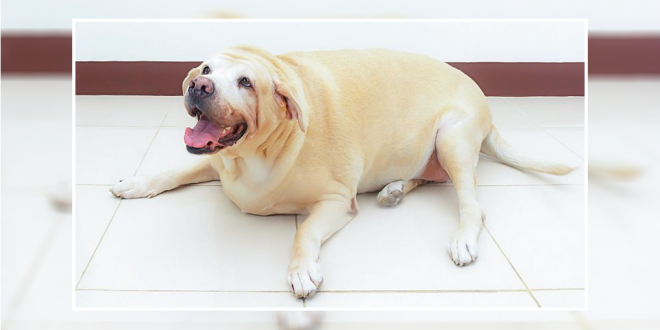

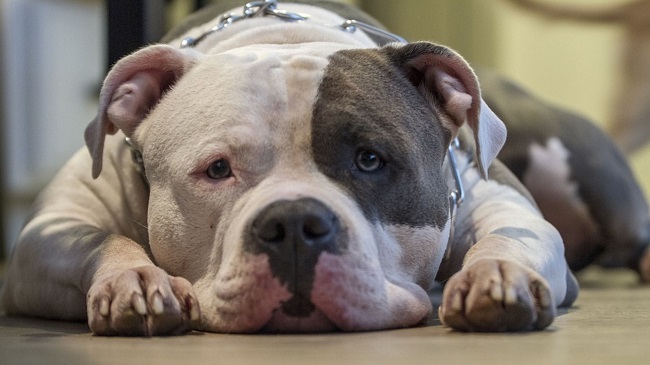
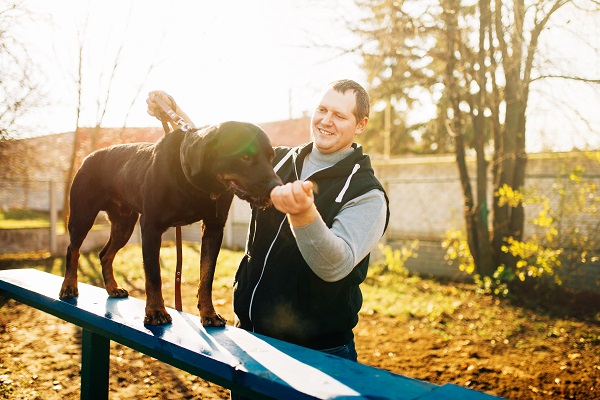




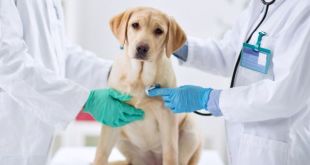
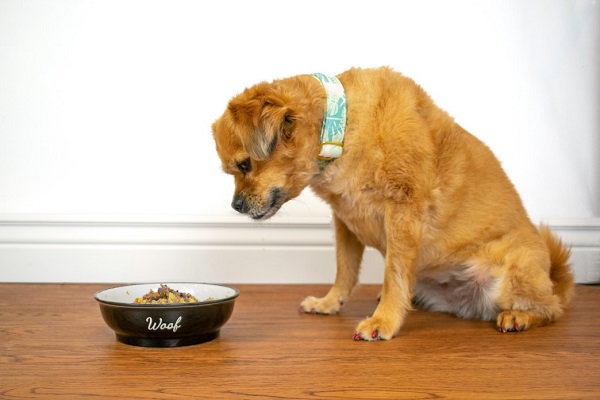












 in Chandigarh, India.
in Chandigarh, India. 

